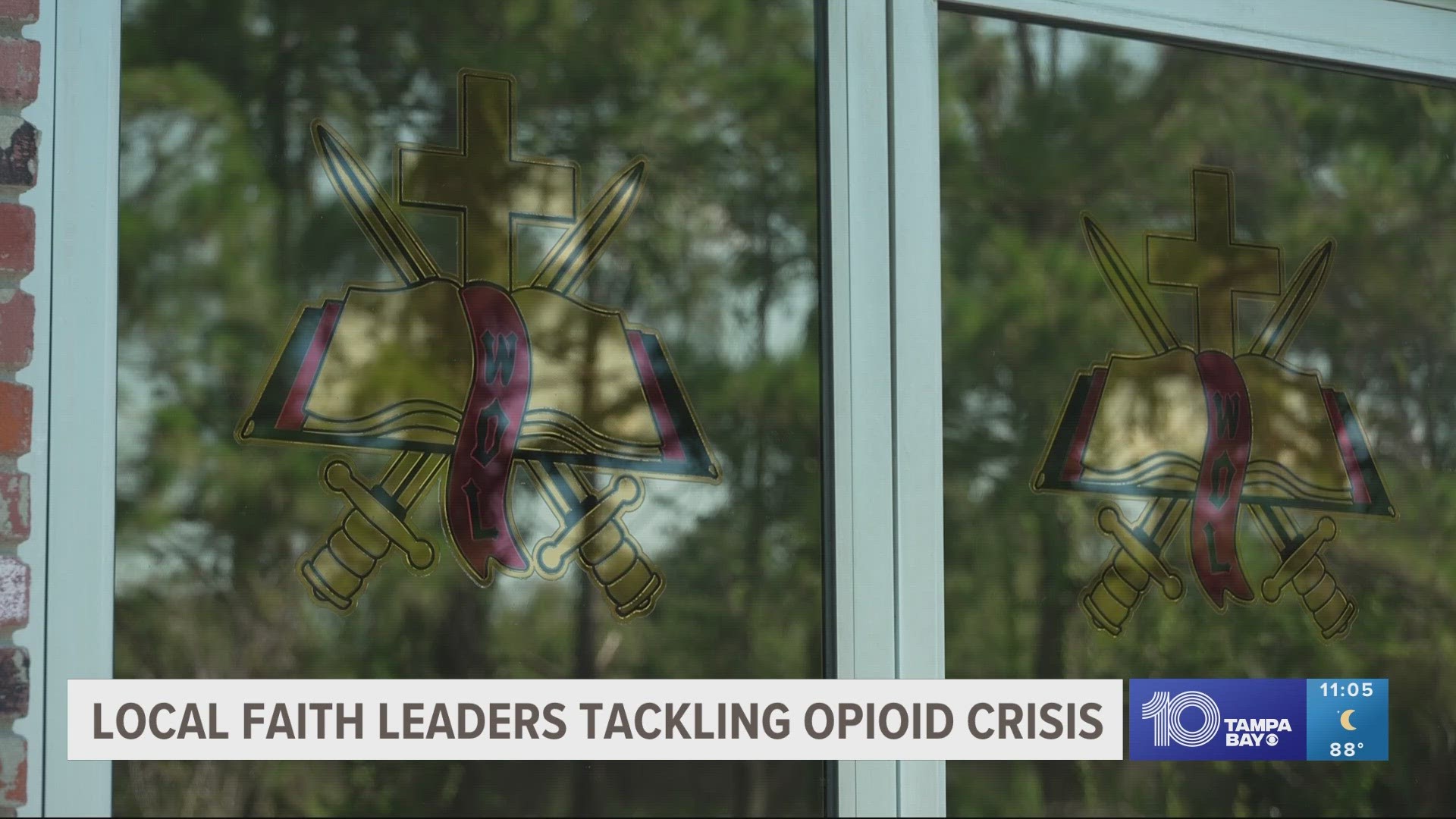ST. PETERSBURG, Fla. — Naloxone could soon be found at your local place of worship.
Right now, groups battling Tampa Bay's opioid crisis have found partners in local faith leaders.
On this National Fentanyl Prevention and Awareness Day, with opioid-related deaths on the rise across the Tampa Bay area, partnerships like these are more important than ever.
"The Tampa Bay region continues to see an increase in opioid deaths and Pinellas is driving that," LIVE Tampa Bay CEO Jennifer Webb said.
Webb estimates fentanyl plays a role in the vast majority of those deaths.
"Fentanyl is a cheap, deadly synthetic opioid and it's found in almost everything on the market," Webb said.
The crisis in our region is disproportionately impacting Black communities. Since 2018, opioid-related deaths among white people in the Tampa Bay region have increased by roughly 90%, but they've increased among Black people by 361% in the same period of time, according to LIVE Tampa Bay.
Now, LIVE Tampa Bay and Jennifer Webb have teamed up with roughly three dozen local faith leaders, many of whom are embedded within Tampa Bay's Black communities.
"We need to team up with people on the ground doing the work, ministering to people day in and day out," Webb said.
Among those faith leaders is Reverand J.C. Pritchett, the president of the Interdenominational Ministerial Alliance of Florida.
"Jesus says that those who follow him are those who respond to the homeless, those who are sick, those who are naked and hungry," Pritchett said. "So our response as a faith community has to be to respond to those who are dealing with this horrible painkiller epidemic that is destroying families."
Last week, LIVE Tampa Bay held a training session for local faith leaders to help them better educate others on mental health and the opioid crisis.
"It showed us how not to be judgmental, how to deal with stigma, how to see signs, how to help those in crisis find solutions, how to respond beyond prayer and sacred text and get them professional help," Pritchett said.
It was one of those faith leaders who ultimately suggested they make Naloxone, an overdose-reversing drug, available in their places of worship.
"It's just another tool to be able to help faith leaders and clergy deal with addiction and overdoses," Pritchett said. "We will face opposition, but the minority voice against this will be overrun by the voices that realize we have an epidemic, we have a crisis, that stats show it and we need to respond."

